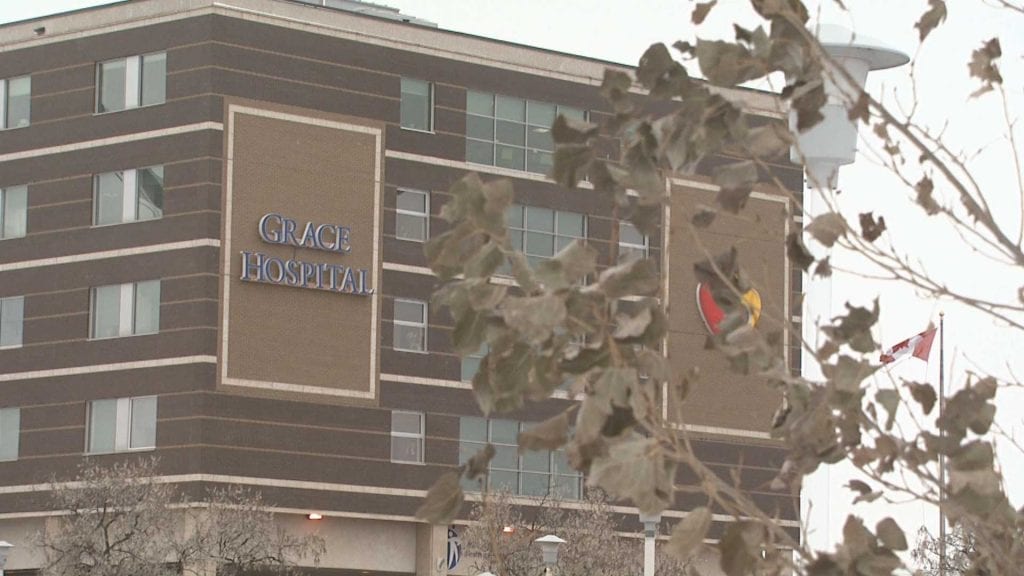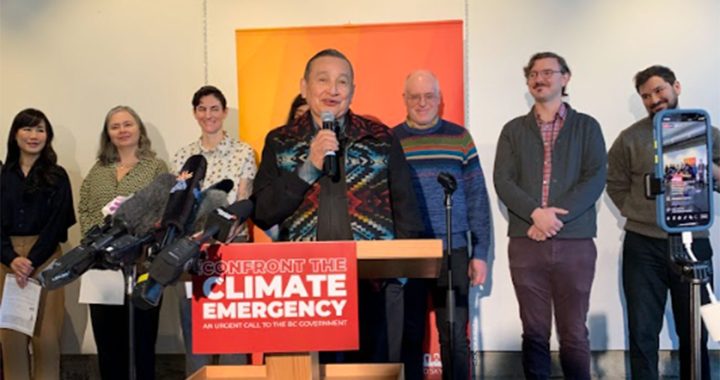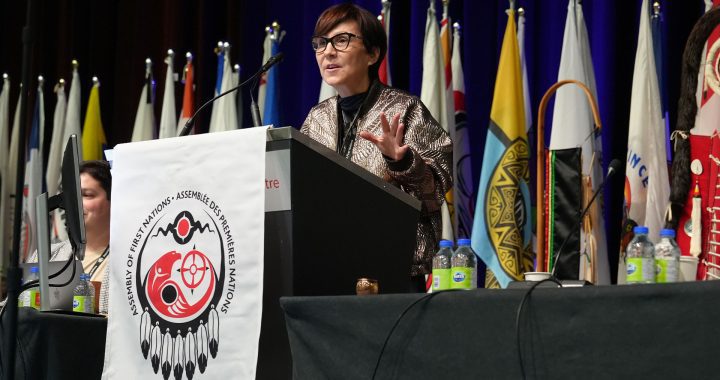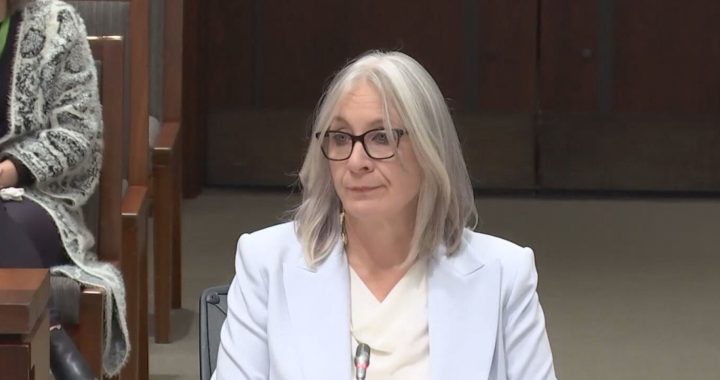
The Grace Hospital in Winnipeg. Photo: APTN file.
A Cree man says a northern Manitoba doctor dismissed his abdominal pain as a “hangover” sending him on an 11-hour bus ride to Winnipeg where his appendicitis wasn’t treated until two days later.
Justin Flett, who claims he suffers ongoing medical complications as a result, is suing two health authorities for “callously, recklessly and/or negligently” treating him during the ordeal that began Jan. 14, 2023.
“They left him to suffer in agony and denied or delayed the urgent care, assessment, and treatment that he required,” says the statement of claim filed in December in Winnipeg’s Court of King’s Bench.
“His life was unnecessarily placed in peril.”
Flett, a building contractor and father of six from Tetaskweyak Cree Nation – 772 km north of Winnipeg – alleges the anti-Indigenous bias and discrimination he encountered began in The Pas, a town 300 kilometres from Tetaskweyak (also known as Cross Lake).
Sharp abdominal pain and nauseau
The 44-year-old says he was visiting his mom when he experienced “sharp abdominal pain and nauseau” that he reported to the emergency room staff at St. Anthony’s General Hospital in The Pas where he was triaged as a low priority.
The doctor who eventually examined him said, “‘I don’t know what to tell you, we don’t treat you here for hangovers,’ or words to that effect,” the statement of claim alleges.
The claim says Flett was not hung over or showed any symptoms of intoxication. And, it says, the pain he experienced was “far more severe and different than anything that might be expected from a hangover.”
It alleges the doctor “did not conduct the physical examination that was required in the circumstances” or order any tests.
None of the claims have been tested in court. Neither the Northern Regional Health Authority nor the Winnipeg Regional Health Authority (WRHA) would comment due to the matter being before the courts.
Statement of defence
Neither organization has filed a statement of defence, said Flett’s lawyer Vilko Zbogar in an email to APTN News.
The claim says, with no medical clinic open in The Pas on a Sunday, Flett took a bus to Winnipeg.
“Throughout the eleven-and-a-half hour journey, Flett was lying in pain on the floor at the back of the bus, clutching his abdomen, because it hurt too much to sit down or to stand,” the claim continues.
After arriving in Winnipeg, the claim says Flett called 911 for an ambulance but was given a phone number for a taxi that he took to Seven Oaks General Hospital in the early hours of Jan. 16.
There, the claim says he was triaged appropriately and spent several hours lying on the floor because it was too painful to sit down.
A passing doctor
He was only taken to an examination room, the claim says, after he waved down a passing doctor at about 4 a.m., adding no one took his vitals or checked on him.
Tests confirmed Flett “was suffering from acute appendicitis and would require surgery urgently.” Yet, he had to wait another eight hours to be transferred to Grace Hospital for the operation, the claim says.
“Because of all the delays, Mr. Flett’s appendix ruptured before he was transferred for surgery, leading to an infection” that his lawyer said in an email left his client with “chronic gastrointestinal disease which interferes with his activities of daily living and his ability to work and provide for his family. This could be a life-long condition.”
“This kind of treatment is unacceptable in Canada,” the claim concluded, alleging the doctor, triage and transportation staff in The Pas and at the Grace breached their duty of care.
The claim also accuses the defendants of breaching Flett’s Charter rights by depriving him of care despite “the obvious signs of medical distress.”
Right to equality
It also alleges they breached Flett’s right to equality by “making assumptions … at least, in part, on anti-Aboriginal stereotypes and biases rather than solely on ethical medical observations.
“The defendants were aware of the existence of systemic bias in the healthcare system, that Aboriginal patients suffer disproportionately poor health outcomes, and that there have been other instances of Aboriginal patients being ignored leading to tragic outcomes.”
As for the WRHA, the suit alleges Seven Oaks violated the protocols for monitoring patients established following the death of Brian Sinclair at another Winnipeg hospital in 2008.
Sinclair, who was Anishinaabe, died after waiting 34 hours to have his catheter changed. A 2014 report into his death made 63 recommendations, including how patients in emergency rooms are triaged and registered.
Flett, who the suit says can no longer work to support his family, is seeking at least $500,000 in punitive and exemplary damages.










